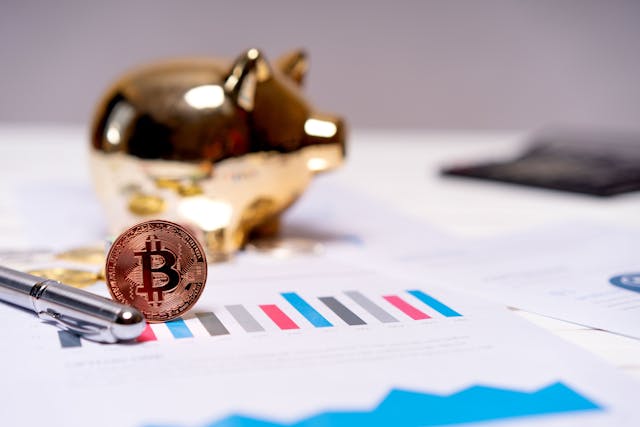How To Get Started With Crypto Safely And Smartly

Cryptocurrency has become a growing buzzword ever since the introduction of Bitcoin in 2009. It’s widely used in conversations, media, and marketing, sometimes without a true understanding of what it means is an attempt to sound smart. TikTok, Instagram, YouTube, and Twitter (now X) are filled with creators who inspire fans to take real, on-chain action. Games like Axie Infinity or The Sandbox introduce cryptocurrency through play-to-earn models and in-game tokens that have real-world monetary value.
Getting started with cryptocurrency can be exciting, but it’s important to approach it with a focus on safety and smart investment principles. Crypto predictions help you stay informed. Analysts often warn about pump-and-dump schemes or dubious coins, so you can avoid bad investments that aren’t immediately apparent. Education is your first investment, so treat it like the foundation of your future wealth.
Learn Before You Invest
Investing means allocating money to various digital assets, such as coins (Bitcoin, Ethereum), stablecoins (Tether, USD Coin), utility tokens (Binance Coin, Arbitrum, Render), DeFi tokens (Aave), and meme coins (Dogecoin, Pepe, Bonk), to generate returns over time. It involves actively managing a portfolio and making strategic decisions based on market trends and risk tolerance. The value of a cryptocurrency depends on how much people want it and how much of it is available, which means that if interest drops suddenly, you can lose most or even all of your investment.
Fraudsters use social media and dating apps to take advantage of those looking to cultivate meaningful relationships, so be wary of investment offers proposed by new friends or love interests. Always verify financial advice independently and never send funds to someone you’ve just met online. Scam artists rely on aggressive sales tactics, cryptic and confusing jargon, and overwhelming paperwork to distract you from red flags; the idea is to keep you fixated on promised rewards while pushing aside your doubts.
Start With a Crypto Simulation & Custodial Wallet
A simulator helps you learn and sharpen your abilities in trading cryptocurrencies, so you can avoid poor decisions that can lead to major financial losses. The online system simulates real market behavior and deals out virtual funds, so you can open and close positions under conditions much like exchange trading. Many crypto simulators feature performance tracking, interactive dashboards, and automated bots that reveal strengths and weaknesses in past choices, reducing bias that can cloud judgment and lead to poor decision-making.
Once you’ve got your hands on some cryptocurrency, decide where to stash your funds. A custodial wallet reduces personal responsibility: the exchange holds your keys and keeps your cryptocurrency safe. If you’re not the type of person who spends endless hours on the phone or computer, handing over your assets to a security-focused company is the best way to go. The obvious drawback of using a custodial wallet is that it stops you from getting the financial freedom you seek.
Explore No-KYC Platforms (With Caution)
You can buy, sell, and trade cryptocurrency without KYC (Know Your Customer) verification. Decentralized exchanges (DEXs) operate on blockchain technology without a centralized intermediary, so users directly engage with one another. You must pay network fees and trading fees to make up for miners’ or validators’ work. A few centralized platforms allow trading without KYC up to certain withdrawal limits, so once you exceed those limits, verification becomes mandatory. While no-KYC offers more privacy, it makes it harder to convert back to fiat currency.
Earn Crypto Instead Of Buying It
Earning cryptocurrency instead of paying for it can offer several benefits, especially if you’re thinking long-term and want to minimise risk. For starters, no capital is required. You get free money that has the potential to grow over time, but you’re still subject to the same market risks as traditional investing. That’s something to keep in perspective during bear markets. Be patient, time out the daily ups and downs of the market, and keep your eyes on the prize.
You can earn free cryptocurrency by signing up with an exchange. Every now and then, trading platforms offer promotions or time-sensitive bonuses to lure in new users and retain existing ones, so be on the lookout for these opportunities. Some websites let you earn free cryptocurrency for writing blog posts and for reading them. You can even supplement your income by sharing articles on your social media profiles to attract more readers. Make sure you can withdraw your winnings easily and regularly.
Avoid Scams
Last but certainly not least, spot and avoid scams. Scams work because they’re designed to look like the real thing, and scammers reach out to you when you least expect them to. They use polite, formal, and urgent language to sound credible. You might be told something like “Your account has been compromised” or “Immediate action is required”. Scammers don’t want you to carefully consider all the possible results of what you’re doing, and if they’ve stolen your money, other scams will follow.
Dating apps are no strangers to cryptocurrency scams. More often than not, scammers pose as successful professionals, entrepreneurs, or investors who have insider knowledge or access to a special investment opportunity. You’re invited to invest in a sure thing or a limited-time opportunity. After getting hold of your money, the romance scammer disappears. Cryptocurrency that’s lost is gone forever because transactions are irreversible, so they can’t be changed or deleted. This helps keep the network secure and prevents anyone from tampering with past transactions.
Wrapping It Up
This article may leave you wondering if it’s a good idea to dabble in cryptocurrencies. If you’re curious but cautious, start with a small amount of money and invest in a well-known coin like Bitcoin or Ethereum, treating it like an educational experience. Those with a commitment to acquiring new knowledge, skills, and competencies are better equipped to preserve and grow their wealth over the long term. To be sure, this information isn’t meant to serve as investment advice, so reach out to a financial advisor with specific questions.






